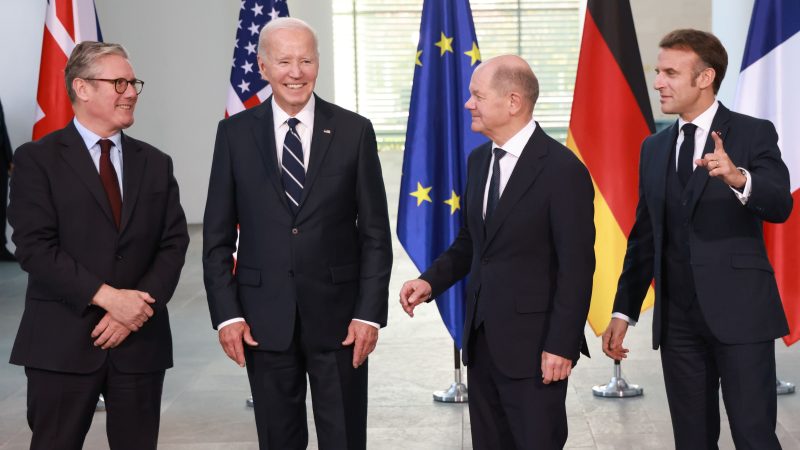Amidst growing uncertainties surrounding the Middle East and Ukraine, US President Joe Biden has taken a step forward to assure world leaders about the United States’ superintending role in global affairs. The president has been involved in a series of high-profile meetings and interactions with international leaders. His discussions center mainly around the political instabilities in Ukraine and the Middle East, and how other countries can contribute to or support solutions that align with democratic principles and global peace.
US as a Giant Peacemaker
President Biden’s interaction with world leaders signals a more proactive approach by the US in handling international matters, diverging from the ‘America First’ policy previously adopted. By presenting America as more of a collaborator than a competitor, President Biden seeks to underscore the US’s role as the peacemaker and diplomatic leader in global affairs.
The meeting with Canadian Prime Minister Justin Trudeau, the first official meeting with a foreign leader since Biden’s inauguration, sets a warming trend in the relationship between the neighboring nations. Their discussions ranged from COVID-19 response to Biden’s interest in green energy. Further, cooperation between the two countries on global conflicts underlines their unified approach to promote peace and stability globally.
Precarious Middle East
The Middle East has always been a focal point for the US, both for diplomacy and international intervention. President Biden has demonstrated the US’s continued interest in the Middle Eastern affairs by reaching out to Israel Prime Minister Benjamin Netanyahu. They discussed regional security, furthering peace, and Iran’s nuclear program, in their first official call since Biden’s inauguration. This continues to demonstrate that the US will remain an influential player in Middle Eastern affairs under Biden’s presidency.
Unstable Ukraine
The growing tension and conflict with Russia has brought Ukraine into the spotlight, drawing in international interest and concern. President Biden’s call with Ukrainian President Volodymyr Zelensky is a significant move in the US’s commitment to Ukraine’s sovereignty and territorial integrity. During their interaction, they stressed the need for close cooperation for the enhancement of democracy and to tackle corruption.
Allied Europe
President Biden also had a series of conversations with key European leaders, including British Prime Minister Boris Johnson, French President Emmanuel Macron, and German Chancellor Angela Merkel. As relations with these leaders are critical in dealing with issues related to Russia, China, the Middle East, and more. Their discussions centered on a range of issues including, the coronavirus pandemic, climate change, economic recovery, and promoting democracy and human rights.
Biden’s approach indicates overall changes in US foreign policy, showing a preference toward multilateral diplomacy and a dedication to repairing strained international alliances. It also highlights the President’s intention to hold strategic discussions and decisions in collaboration with various countries, moving away from one-sided narratives and unilateral decisions. The recent interactions and discussions of President Biden with worldwide leaders demonstrate the pivotal role anticipated by his administration in global peace-building and diplomatic negotiations.
